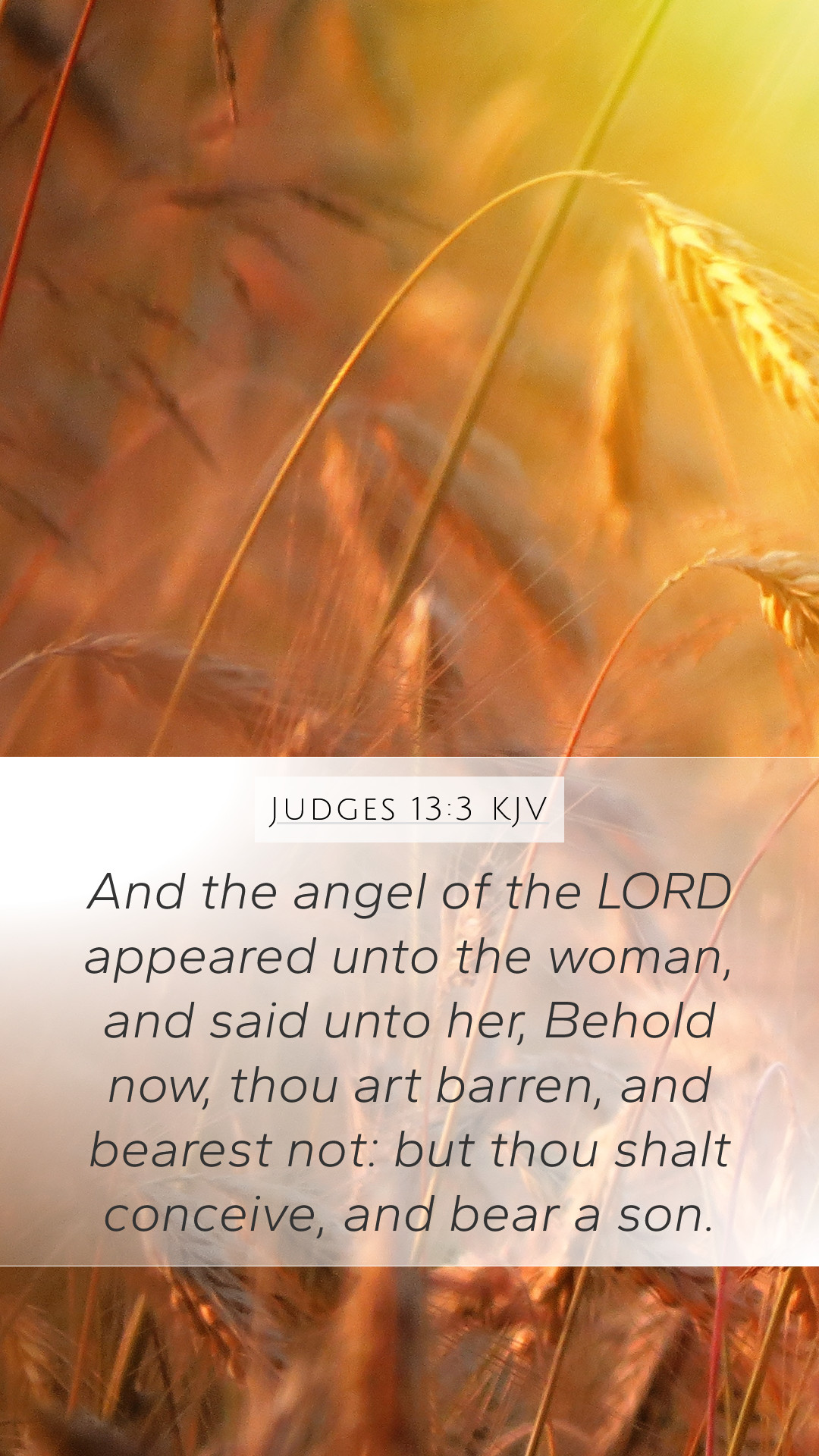Bible Verse Meaning: Judges 13:3
Overview: Judges 13:3 states, "And the angel of the Lord appeared unto the woman, and said unto her, Behold now, thou art barren, and bearest not: but thou shalt conceive, and bear a son." This verse marks the divine announcement of the birth of Samson, one of the prominent judges of Israel, and is rich in theological implications and significance.
Understanding the Context
This passage is nestled within the narrative of Israel's cyclical pattern of sin, oppression, repentance, and deliverance. The Israelites were under Philistine rule, experiencing hardship due to their disobedience to God. The angel's appearance to Manoah's wife signals God's mercy and plan to deliver Israel through a chosen individual.
Bible Verse Interpretations
Matthew Henry notes that the appearance of the angel indicates God's intervention during a time of desperation. The barrenness of Manoah's wife, often seen as a stigma in biblical times, is transformed into a moment of hope and divine purpose. This reflects an essential theme: God often chooses the weak and improbable vessels to fulfill His plans.
Albert Barnes provides insight that the angelic visitation signifies God's direct action in human affairs. Joséphus, though outside standard biblical commentary, emphasizes that such divine encounters are both rare and significant, illustrating the importance of Samson's impending birth as a pivotal turning point for Israel.
Adam Clarke expands on the implications of barrenness, emphasizing it as a recurring motif leading to miraculous births in Scripture, such as those of Isaac and John the Baptist. This establishes a pattern through which God operates—a reminder that faith can culminate in the seemingly impossible.
Theological Insights
- Divine Intervention: Judges 13:3 highlights God's sovereign intervention in the affairs of men, particularly in sending His messenger to announce salvation.
- Hope in Desperation: The scripture demonstrates that God provides hope even in barren and hopeless situations, as seen in the lives of Manoah and his wife.
- Historical Context: This passage reflects the sociopolitical climate of Israel, feeding into the larger narrative of the historical context in which the Israelites lived—marked by disobedience and a need for restoration.
Application of the Verse
In modern settings, believers can interpret this verse within the framework of faith, as a reminder that God can bring forth life and purpose from what seems hopeless. This serves as a principle applicable to personal struggles and societal challenges; it illustrates that divine promise and fulfillment often arise amidst difficulty.
Cross References
- Genesis 21:1-3: The birth of Isaac to Sarah, emphasizing God's power to fulfill promises regarding offspring.
- 1 Samuel 1:20: Hannah's prayer and the miraculous birth of Samuel, reflecting similar themes of divine intervention.
- Luke 1:13-17: The announcement of John the Baptist's birth signifies continued divine action in the world.
Conclusion
Judges 13:3 encapsulates the essence of divine action, the significance of miraculous births, and the hope rooted in God's promises. Understanding this verse within its context enriches one's Bible study insights and contributes to deeper Scripture analysis. Through various interpretations, it emerges that God's purposes are often birthed in the most unexpected circumstances, calling believers to trust in His divine wisdom and timing.


